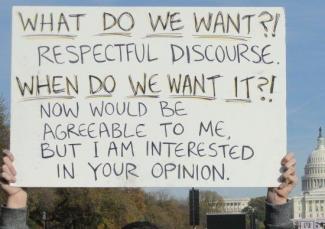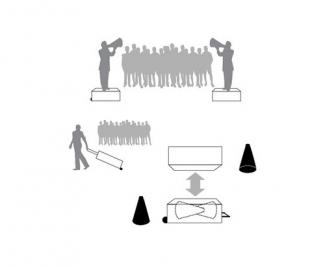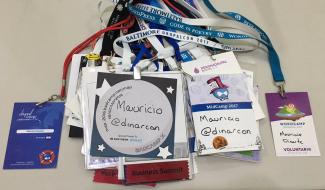Community-managed categories is an idea from just about the beginning of my time as a web developer. As "Community-managed taxonomy" it was my submission to the 2007 Summer of Code, barely a couple years into my time as a Drupal developer.
The Drupal module Community Managed Taxonomy, or CMT, variously known as Community Managed Categories, seeks to bring the possibility of mass participation to categorization (taxonomy) and therefore potentially site structure.
As the project page put it:
Community-managed taxonomy (CMT) opens categorization of content to the site's community. Users can influence both what terms nodes are tagged with and how these terms are themselves organized.
It can also be used to make structured tags on the fly. Users do not need to be logged in to make or propose terms for content.
I very much hope to get back to this work. I never did get the module working—Agaric was a new company and my father became ill and was killed by the hospital that summer, and my mentor and i were not the best match—and after failing to complete the module and get the second stipend, the time and circumstance has not yet returned. Please contact us if you may be able to help make the time right in 2021!
This capability to allow a large community to coordinate in categorizing may be more salient when democratically-moderated mass communication is made possible. That's a goal i have pursued even longer, and i think it is more important and possibly logically prior to community-managed taxonomy. First we need community-managed communication, so that the resources we build together can reach, be distributed to, the people who should know. But building community-managed communication may bring up the need for community-managed categories directly, too— how do we decide what the groups are that we can manage communication within? That's a job for community-managed taxonomy, probably.
It is all tied up to what I have been aiming for for decades. This description is from 2008:
People have always needed something better than mailing lists— or other communication tools as they exist now. We need something that can reach millions of people (or billions– everyone) and still be open to everyone on an equal basis. Reaching everyone means filtering to reduce quantity and increase quality. Staying open to everyone means that the filtering must not be controlled by any group, must in some true sense belong to everyone.
The Internet has this potential. (The issue of access remains crucial, but is separate from helping the Internet reach closer to its potential for people who do have access.)
People Who Give a Damn is incorporated as a nonprofit organization to connect, without interference and without wasting anyone's time, everyone who gives a damn.
As the first technique to achieve this, anyone signed up to receive messages in a network can submit a message to be sent. The message will be publicly available immediately, but it will be moderated by a random sample of other people in the network pulled to serve jury duty. If they decide it is important enough to send to everyone in the network, it is sent to everyone. If not, the message will have more limited distribution to the sender's personal contacts and possibly to groups within the overall network to which the sender belongs.
This is simple. Yet it will make possible horizontal communication, not top-down few-to-many broadcasts, that is also mass communication. We need horizontal mass communication because we need mass cooperation and collaboration. It is possible with current technology, and necessary for the well-being of ourselves, our friends and family, our fellow humans, our Earth. Anyone interested in updates on progress or how they can help, please contact me.






Comments
Add new comment